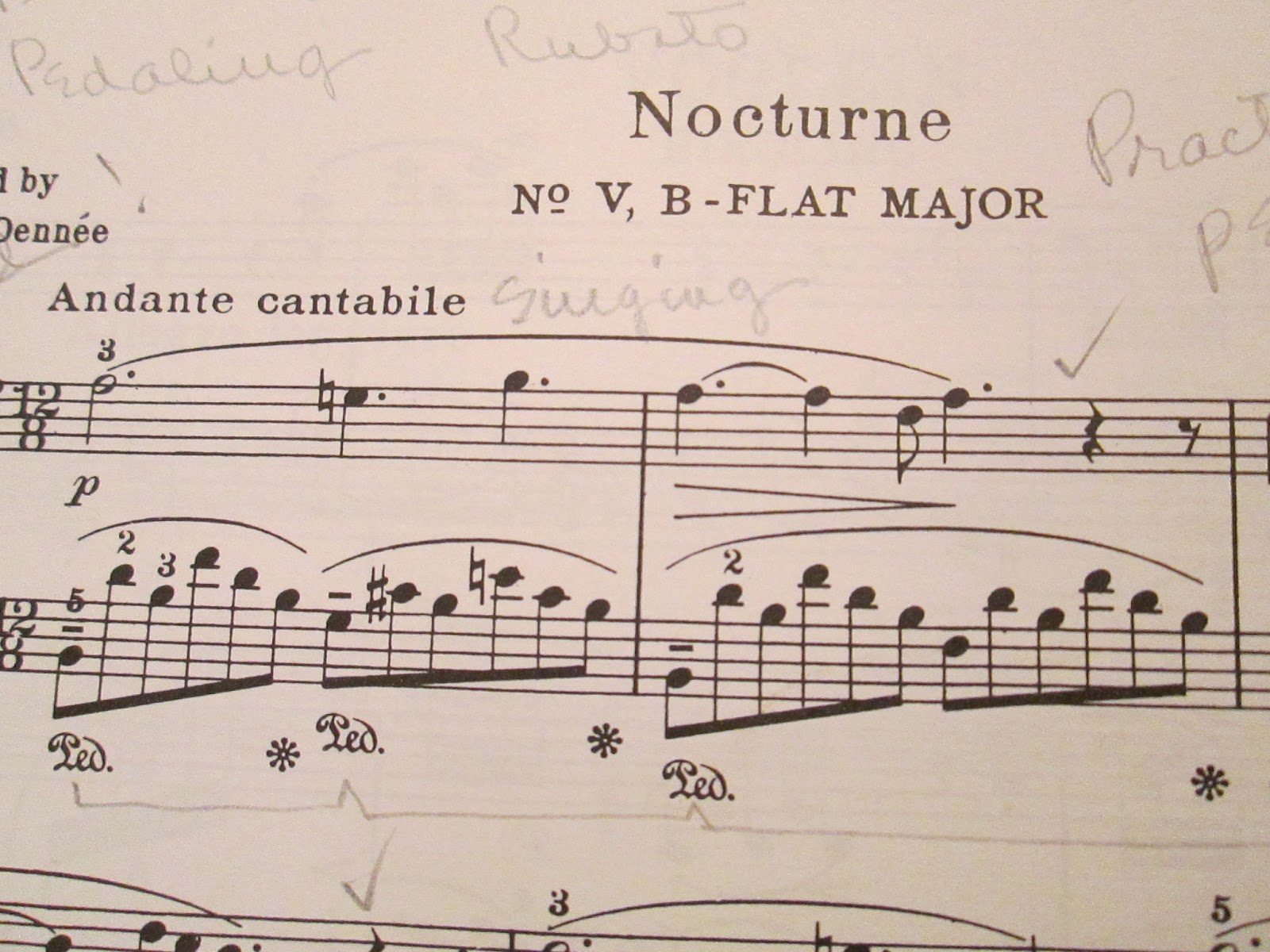Work, school, travel, and other life events have kept me from coming here for several months. But today I have to break the silence to remember my beloved piano teacher who was so much more than a piano teacher. I've written about her before, here and here.
Today marks the two-year anniversary of her death. Interestingly, at the time of her death, I was taking a class on the book of Revelation. And now I'm taking a class on the Gospel of John. Both books that talk a lot about life and death, and eternal life. And light and dark, too, especially in John. And day and night, especially in Revelation.
The last couple of years off her life, she was working on the Nocturnes of Francis Poulenc. She said I simply must get them and learn to play them. She would play them for me, commenting on the jazz touches that Poulenc added to his impressionistic sound.
So, sometime in the past year, I ordered the music. Making sure it came from the publisher she had recommended, the Parisian edition, not some take-off arrangement. (Some things are worth splurging on.)
A couple of months ago, I was out of town to visit a friend in Colorado and take some time off. I called a nearby college and asked if they might be able to let me use a practice room while I was in town. They said yes. I expected a small room with an old piano in it. But they gave me a huge room with a Steinway in it. A beautiful, nicely kept Steinway. Not old and out of tune, but actually wonderful.
And another time when I was out of town, at the Scarritt-Bennett Center in Nashville for a group retreat, I had access to a wonderful piano, though to be honest, I don't remember what kind it was.
Both times, just hoping I might have a chance to play, I had my music with me. The Nocturnes of Poulenc. The music that will always remind me of her and those last visits we had.
So both times I played my heart out. Not wonderful playing, because I don't have time to practice as is required to play this music wonderfully. But it was a wonderful way to connect with her and remember the many hours we spent at her wonderful piano, and all the wonderful pianos I played on for competitions she coached me through (though I never felt wonderful while doing those!)
And I wept at those wonderful pianos. Wonderful cleansing tears that I so needed to cry, because life has been so full these past two years, I have hardly had proper time to do that, to remember her well and to grieve her loss, though I feel it so often in the midst of various activities. Especially when I wish I could pick up the phone and call her.
The dark and light of a piano keyboard will always be a way of connecting with her. The "night" of the nocturnes will always bring a certain kind of "day" as I connect with her love through them.
And unlike the Steinway in Colorado Springs, which I said goodbye to and then looked at through a locked door, doubting that I'd ever see it again, because of the Gospel of John and the Book of Revelation, I do look forward to seeing her again.
And I am thankful. Thankful for her life. Thankful for eternal life. Sad right now, but thankful.
(This was one of the first pieces I ever played as her student. Nice bookends.)

















































